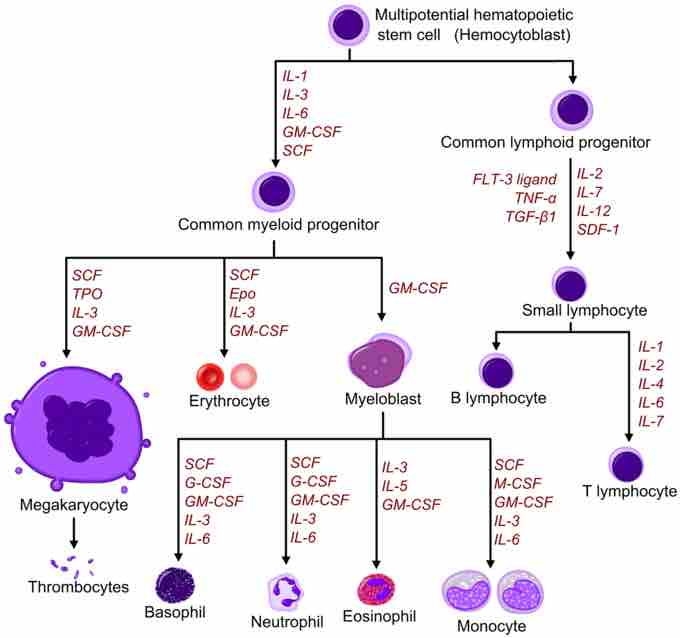Growth factors, cytokines, and hormones are all chemical messengers that mediate intercellular communication. Confusion arises due to their overlaps in function and definition.
Growth Factors
A growth factor is a naturally occurring substance capable of stimulating cellular growth, proliferation, and cellular differentiation. An example is granulocyte macrophage colony-stimulating factor (GM-CSF), a growth factor that stimulates the production of white blood cells. Growth factors are typically cytokines or hormones, but not all cytokines and hormones are growth factors.
Cytokines
A cytokine is a small protein involved in cell signaling. Some cytokines are involved in growth, such as GM-CSF, and so are classed as growth factors, but many others are not. Confusingly, cytokine and growth factor are sometimes used as interchangeable terms.
A cytokine differs from a hormone in that it is not secreted from a gland.
Hormones
A hormone is any member of a class of signaling molecules secreted by ductless glands that are transported by the circulatory system. As with cytokines, some are involved with growth, such as the growth hormone produced by the anterior pituitary gland, and may be classed as growth factors, but others are not.
Hormones are secreted from specialized ductless glands into the circulatory system, differentiating them from cytokines.

Hematopoiesis as it occurs in humans, with important hemopoietic growth factors affecting differentiation
This chart shows the complexity of interactions, and the multitude of growth factors that stimulate proliferation and differentiation of cells that is common to all cell types. The majority of growth factors shown above are cytokines such as GM-CSF, however the hormone EPO secreted by the kidney plays a key role in erythrocyte (red blood cell) proliferation.